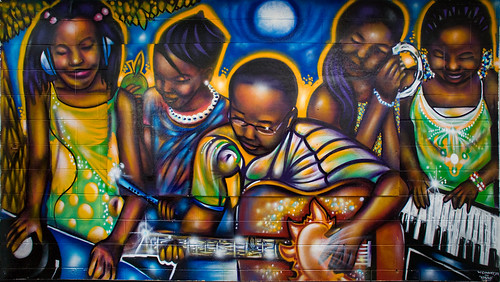 There’s a little bit of cool outside right now — the last few days have been so hot, I’m reveling in this bit of mist and ease.
There’s a little bit of cool outside right now — the last few days have been so hot, I’m reveling in this bit of mist and ease.
~~ ~~ ~~ ~~ ~~ ~~ ~~ ~~
I’m rereading Jeanette Winterson’s Art Objects: Essays on Ecstasy and Effrontery in bits and starts. Last night I got back to this section:
The healing power of art is not a rhetorical fantasy. Fighting to keep language, language became my sanity and my strength. It still is, and I know of no pain that art cannot assuage. For some, music, for some, pictures, for me, primarily, poetry, whether found in poems or in prose, cuts through noise and hurt, opens the wound to clean it, and then gradually teaches it to heal itself. Wounds need to be taught to heal themselves. (1997, pp 156-157)
I would urge anyone who loves words, who is interested in the life of art, of the artist’s life as art, and/or who wants criticism as something alive and daring to read this book (and, of course, to read all the rest of her books.)
~~ ~~ ~~ ~~ ~~ ~~ ~~ ~~
This morning, I’m wondering what our country, this USA, would look like if we marked and honored Interdependence Day. What if it mattered that we need each other?
Yes, it’s important to take note of the day on which you broke free from an oppressor — do you know the date/month/time of year of your own personal independence day(s)? — but here’s the next thing: no one ever actually breaks free alone. We decide, ourselves, that it’s time to take a step toward freedom — and we always have (had) help to get there, in one form or another. What if we honored and recognized that help? What it it wasn’t seen as weakness to stand with others, to allow others to help us? What if our country honored all the ways that we truly depend upon each other?
The myth of American Independence, the pulling-yourself-up-by-your-bootstraps thing, that’s an entrapment; it’s just a lie. We all have helping hands, whether in the shape of friends, family, community, characters in books, art, tv shows, stories from movies, class or race privilege, trust funds, education — if we find ourselves getting free, it’s because we have had it made known to us that free is a possibility. Who showed us that option? Who were our role models? What characters or foremothers or stories did we tuck under our hearts when we felt the most ensnared that began to chew and gnaw at our bindings, that began to push our face toward the sun of our own power? Those desires and makers-of-possibility, those who held our hands whether they knew it or not: we need to remember and honor them as well.
Back in 1993, my list would’ve included: my mother, my sister, the characters in Macho Sluts by Pat Califia, the characters in Tiger Eyes by Judy Blume, my dog Katja, Molly Millions from William Gibson’s Neuromancer, Kata Sutra…
Let that be your write today: for 10 minutes on this Independence Day, write about who and what helped you get here now — you might begin with the phrase, “This is who/what got me (her/him/us/hir/them) through…” or start by making a list of the people and characters that brought you (and/or your character) through the fire, and then choose one or more of the items from your list as a place to start. Follow your writing wherever it seems to want to go!
Thank you for the ways that you have been a guiding light for others, for folks you’ll never even know. Thanks for the ways you honor all your inspirations. Thank you for your creative power, your vulnerable strength, your resilience, your words.

Pingback: when it’s time for independence | writing ourselves whole